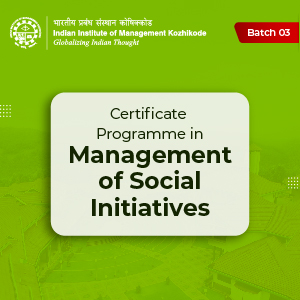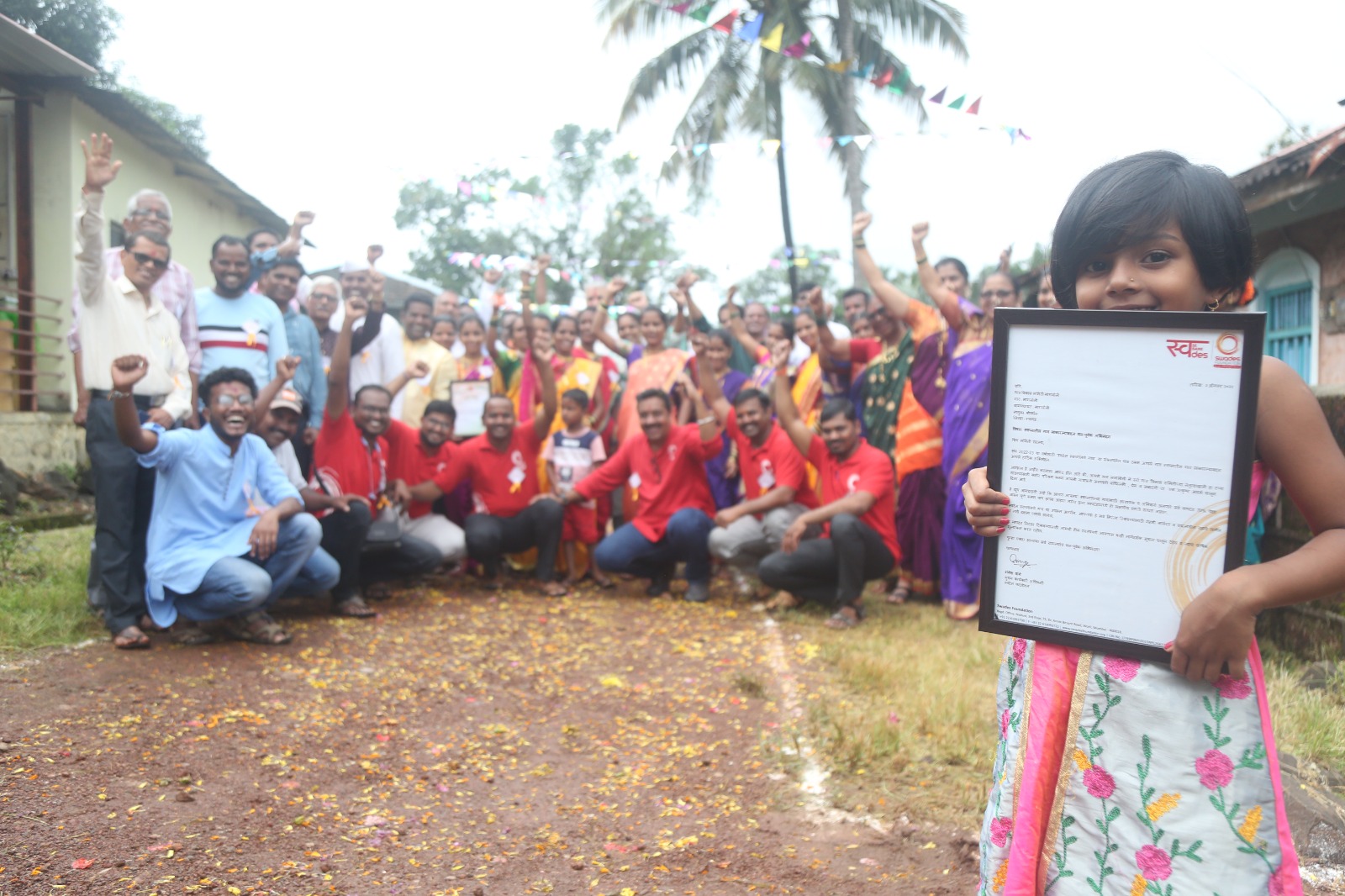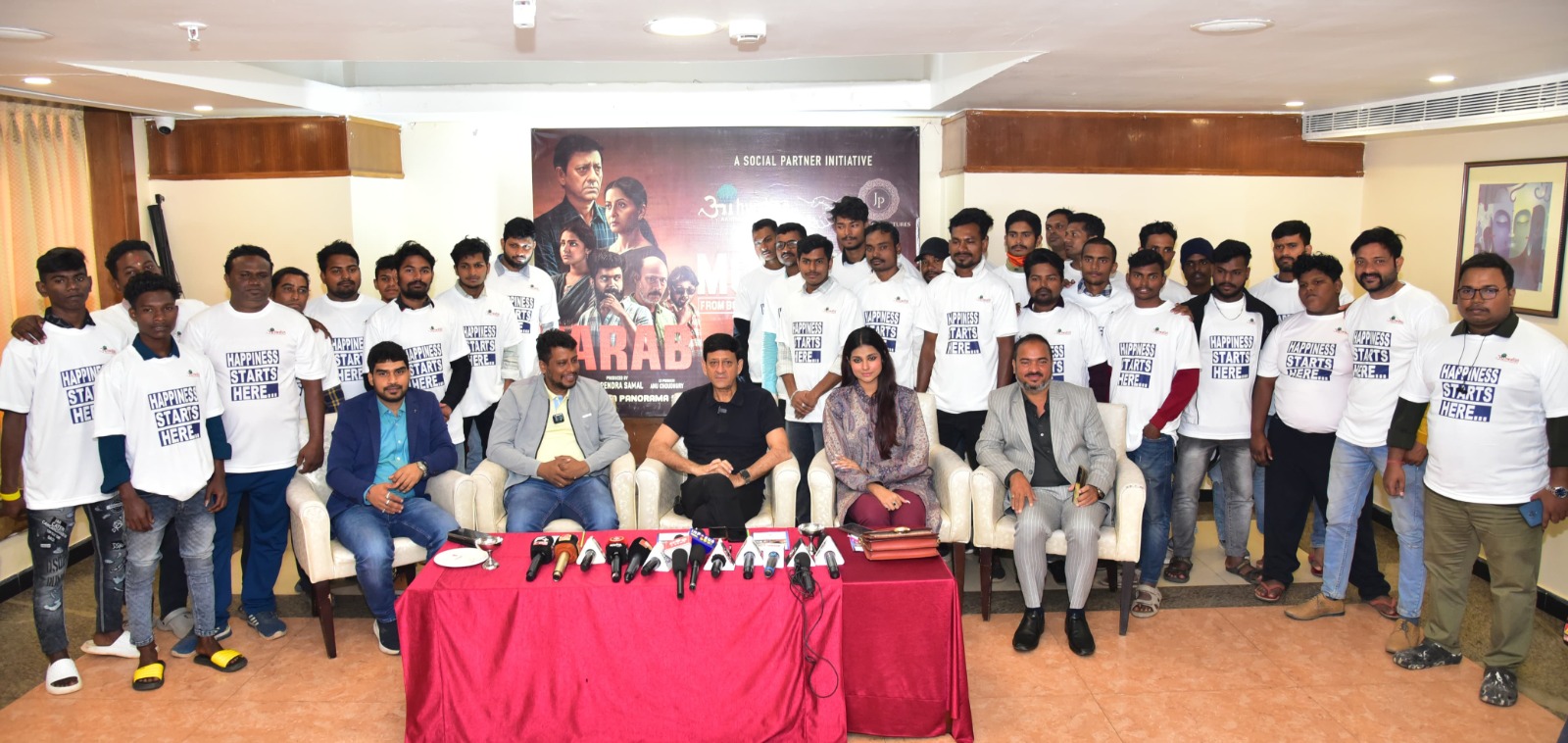Subscribe our Weekly Newsletter
RFP for Selection of an Agency for Third Party Evaluation of NMEICT program funded by the Ministry of Education, GOI

Organization: EdCIL (India) Limited
Apply By: 07 Feb 2025
About the Organization
EdCIL (India) Limited, a Mini Ratna Category – I CPSE (Central Public-Sector Enterprise) Company, registered at EdCIL House, 18-A, Sector 16-A, NOIDA, U.P – 201301 (India), was incorporated in 1981, under the Ministry of Education. It is an ISO 9001:2015 & 14001:2015 Certified Company. It is a continuously dividend paying and profit-making company and the only PSU (Public Sector Undertaking) under Ministry of Education.
The company over the four decades of existence and has executed many projects and consultancies across the entire value chain of education. It has many satisfied clients spanning across Govt. of India, State Governments, Foreign Missions, Autonomous Bodies and Centres of Excellence (IITs, IIMs, IIITs, IISERs etc.).
The company offers the following technology led solutions in the Education &Training space:
- Digital Education Systems
- Online Testing and Assessment Services
- Overseas Education Services
- Educational Procurement Services
- Educational Infrastructure Services Division
- Advisory Services
- The company has expertise and large network of alliance partners and has tied up with quality monitoring bodies to undertake skill building including Information and Communication Technology (ICT) training and Teachers training projects.
About the Proposal
The National Mission on Education through Information Communication Technology (NMEICT) is a Centrally Sponsored Scheme that is currently nearing the end of its third phase. Operational since 2009, the scheme’s main objective is to provide seamless access to quality education and educational content to all eligible and willing learners in India by leveraging ICT.
NMEICT has facilitated the growth of digital learning, enriching the educational experience of many students, faculty, and education managers at higher education institutions through multiple innovative technological-driven education projects. NMEICT’s projects have provided crucial support for the integration of technology in higher education.
NMEICT was envisaged to leverage ICT in teaching and learning for all learners in Higher Education Institutes (HEIs) at anytime and anywhere. The scheme aims to increase India’s Gross Enrolment Ratio (GER) and improve access, equity, and quality of higher education. NMEICT scheme and projects are aligned with the National Education Policy (NEP 2020).
Its many projects are hosted by prestigious institutions such as IIT-Madras, IIT-Bombay, IIT-Kanpur, Delhi University etc. offering two types of digital educational tools- namely,
Digital Learning Platform that primarily help students access a wide range of online credit courses developed in collaboration with academic and industry partners, and testing service, and Management and Research Platforms. The key NMEICT initiatives of interest in Phase III are listed below:
- SWAYAM is an integrated platform for online credit courses, using information and communication technology (lCT), covering content related high school, higher education subjects, and skill sector courses. The platform is managed by IIT Madras and the process of course delivery is handled by 10 National Coordinators. Since its launch in 2017, the platform has witnessed a total of 4.2 Cr+ enrolments and 30.6L+ certificates.
- SWAYAM Plus offers industry aligned courses that are designed, developed and delivered in collaboration with industry partners. Launched in 2024, in a very short span of time, the platform has seen over 65,000 registrations.
- SATHEE platform provides teaching-learning and content support for competitive examinations – JEE and NEET, and has planned to expand its coverage for SSC, ICAR, CUET, IBPS and RRB. Additionally it has online assessment module for students and mentoring opportunities (including doubt clearing). With over 10,000+ hours of learning content on the platform it has successfully been able to reach 3.3 Lakh students preparing for JEE and 84,375 NEET aspirants.
- SAMARTH was developed in collaboration with Delhi University to serve as an advanced Enterprise Resource Planning System (ERP) to automate various processes related to academics, governance, and administration at HEIs. Till date 3277 HEIs have been onboarded on SAMARTH.
- Other initiatives of interest are:
- SWAYAM Prabha provides educational programs through 48 DTH channels encompassing school and higher education.
- E-Shodh Sindhu provides a database of over 10000 peer-reviewed journals to students and staff at centrally funded institutes and universities.
- E- Shodh Sudhi’s plagiarism software facilitates original and quality research and writing by students and staff in HEIs.
- IRINS is web-based platform to enhance collaboration, curation, and showcasing of research outputs by researchers at academic and R&D institutions.
- National Digital Library (NDL) is a virtual repository of learning resources to enable people to learn and prepare from global best practices.
- Virtual Lab an initiative to promote remote experimentation.
- E- Yantra is a robotics outreach program that aims to support young engineers and harness their talent in robotics and allied subjects.
- FOSSEE promotes the use of open-source tools to improve the quality of education in our country. Vidwan is a database of profiles of researchers and faculty members from leading institutions.
- NICE- National Insights Centre on Education a command center to monitor progress and outcomes of all key higher education related schemes.
As the 3rd phase of the scheme is ending the MoE aims to understand the following through the proposed evaluation: (1) Impact of the NMEICT scheme (Phase III) and its individual projects and (2) evidence-based estimation of key outcomes, barriers, and required modifications for improved performance.
Objectives of the evaluation:
As the 3rd phase of the scheme is ending, the proposed evaluation of the MoE’s NMEICT scheme has a two-fold goal:
- The Ministry wants to understand the impact of the NMEICT scheme (Phase III) and its individual projects to improve the quality of education throughout the country. The estimation of the impact can be undertaken using secondary data available for each individual project and primary data collection from key stakeholders. Considering that the NMEICT is a long-standing scheme, the evaluators may also consider undertaking a design using synthetic control group functioning as a counterfactual to estimate project-level impact.
- It is important for the MoE to have an evidence-based estimation of key outcomes achieved and critical barriers (implementation, resource, capacity, systemic challenges etc.) that prevented achievement of targeted outcomes. Concrete and specific recommendations to increase the reach, impact and effectiveness of the projects / scheme will be required to be submitted. Need for filling the gaps that remain through improving existing projects or by launching new projects should be communicated clearly in the evaluation.
Aligned with OECD’s Evaluation Criteria, the proposed NMEICT evaluation are required to investigate the relevance, effectiveness, efficiency, and impact of the scheme and its many projects.
- Relevance is supposed to assess to what extent various projects of NMEICT address the needs of learners, HEIs, faculty members and other users.
- Effectiveness is supposed to examine beneficiary and stakeholder experiences of various projects with regards to usefulness, usability, and satisfaction.
- Efficiency measures how well resources are used to deliver timely results in a cost effective manner.
- Impact will aim to identify how the projects have effectuated change in student learning, project completion through credit courses, skill development, employability and research networks etc.
Additional objectives of the proposed evaluation are:
- To understand the implementation status and processes challenges of NMEICT and its projects across different parts of the country.
- The extent to which NMEICT has facilitated digital education and digital integration across HEIs and India’s higher education landscape.
- To assess the extent of achieved goals as mentioned in the “Objectives” and “Project scope” of the different projects under NMEICT.
- Assess the sufficiency of the multiple ICT in education projects under NMEICT scheme, in enhancing GER and educational quality, equity, and inclusion.
- Evaluation of UI/UX of platforms developed for NMEICT and its projects, including popularity of different modules, access through different devices, availability in different languages, and data sharing across platforms.
- Assessment of input quality (human resource and infrastructure) at host institutions who are managing different projects.
- Assessment of the awareness about NMEICT and its projects across different states.
- Effectiveness of dissemination of information to key stakeholders and citizens through portals and communication packets.
- Assessment of final outcomes achieved by the projects.
Scope of evaluation:
- The proposed evaluation should demonstrate the impact of the scheme and its projectspecifically, assessing its additional benefits. Essentially, because the project was implemented there were tangible benefits to participants compared to other participants who were similar before participation in the project. The difference in improvement of their outcomes, keeping all other factors the same, indicates the impact of the program.
- The evaluation should focus on implementation of NMEICT since FY 2020-21 and its intended and unintended outcomes. Use primary and secondary data to understand all schemes under NMEICT.
- The research must capture the reach, design changes informed by previous evaluations, outcomes and impact (ICT in education adoption, learning quality, learning outcomes, workplace engagement, job placements of students, enhanced teacher/instructor quality, strengthening of higher education learning in Tier 1, Tier 2 and Tier 3 HEIs).
- The evaluation will use high quality data and evidence from secondary and primary sources for the purposes of the evaluation.
- A mixed method approach that uses both quantitative and qualitative data analysis is recommended. All research tools must be reliable and valid.
Eligibility
The agency will be a professionally qualified firm registered in India since last 10 Years (Pvt Ltd., or Ltd., company/ public Ltd/ partnership firm/ Proprietorship firm) with minimum of 8 years of consultancy work experience and having profitability and positive net worth in last 3 Financial Years. Consultancy Firm/s should have conducted evaluation studies at the national/ state level and have extensive experience in conducting similar scheme evaluation studies in public/ government sector/ social sector environment.
Basic Technical eligibility criteria:
- The bidder must be a Company (Public Ltd. Or Pvt. Ltd.)/Proprietary /Partnership Firms registered with Statutory Authorities in India for the last Ten years from the date of NIT.
- Bidders having a minimum of 8 years of experience (on date of NIT) in consultancy work should apply against this invitation for tender.
- The average of the annual turnovers for the past three financial year i.e. 2021-22, 2022-23 and 2023-24, should not be less than Rs. 50 (fifty) crore. The bidder should have a positive net worth & Profitability in the last 3 FY as above.
- The bidder must have completed at least 3 projects/assignments relating to third party /external evaluation of Central/State Govt. programme or similar assignments funded by donor agencies such as the World Bank, Asian Development Bank, United Nation Agencies etc during the last 10 years.( FY 2014-15 to FY 2023-24)
- Out of the above assignments, the bidder should have received professional fee of Rs. 50 lakh (Exclusive of taxes) in at least one assignment.
- The bidder shall be ISO 27001 certified and CMMI Level III.
- The proposed team must have the minimum educational qualification and cumulative work experience as given.
How to Apply
Last date and time for submission of bids 07.02.2025 up to 11:00 hours.
For more information please check the Link
Stay in the loop with the newest RFPs and Grants through NGOBOX's WhatsApp Channel. Join now by clicking here!
Latest Online Store
Latest Grants
Latest News
© Renalysis Consultants Pvt Ltd

.png)













.png)










.jpg)